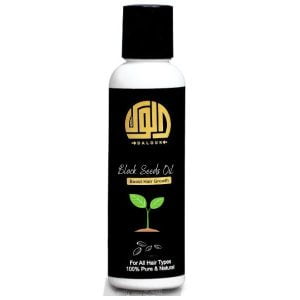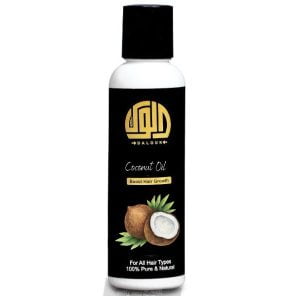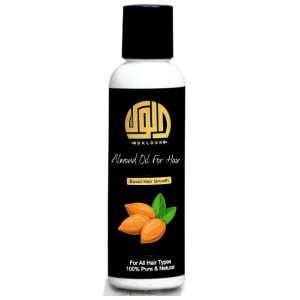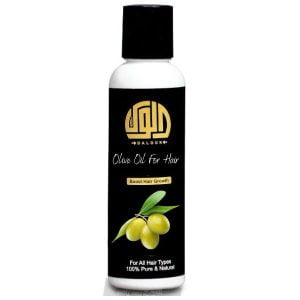Is your hair thirsting for hydration, exhibiting the telltale signs of dryness that includestangled, split ends, and a lackluster appearance? Fear not, for the remedy lies in the realm of the best oil for dry hair. It is about luxurious elixir that not only quenches your hair’s thirst but transforms it into a cascade of silky strands. The quest for the ideal oil to combat dryness is not just about finding a product but discovering a tailored solution that brings life back to your locks. In the following post you are going to learn How to handle dry hair in a daily routine.
Best Oils for Dry Hair Real Knowledge
When it comes to addressing dry hair, using the right oil can make all the difference. Let’s delve into understanding the best oils for dry hair and explore some easy oil treatments you can try at home to revitalize your locks.
Understanding the Best Oil for Dry Hair
The best oil for dry hair is one that deeply moisturizes without leaving a greasy residue, nourishing the hair from within. Here are a few standout options:
Argan Oil
Known as “liquid gold,” argan oil is rich in vitamins, antioxidants, and fatty acids. It’s lightweight yet deeply hydrating, making it perfect for dry, damaged hair.
Coconut Oil
This tropical favorite is not only delicious in cooking but also a fantastic hair moisturizer. Coconut oil penetrates the hair shaft, reducing protein loss and leaving hair soft and shiny.
Jojoba Oil
Jojoba oil closely resembles the natural oils produced by our scalp, making it an excellent choice for dry hair. It moisturizes without clogging pores and helps balance oil production.
Almond Oil
Sweet almond oil is rich in vitamins E and D, nourishing the scalp and promoting healthy hair growth. Its light texture makes it ideal for all hair types, including dry hair.
Exploring Oil Treatments for Dry Hair at Home
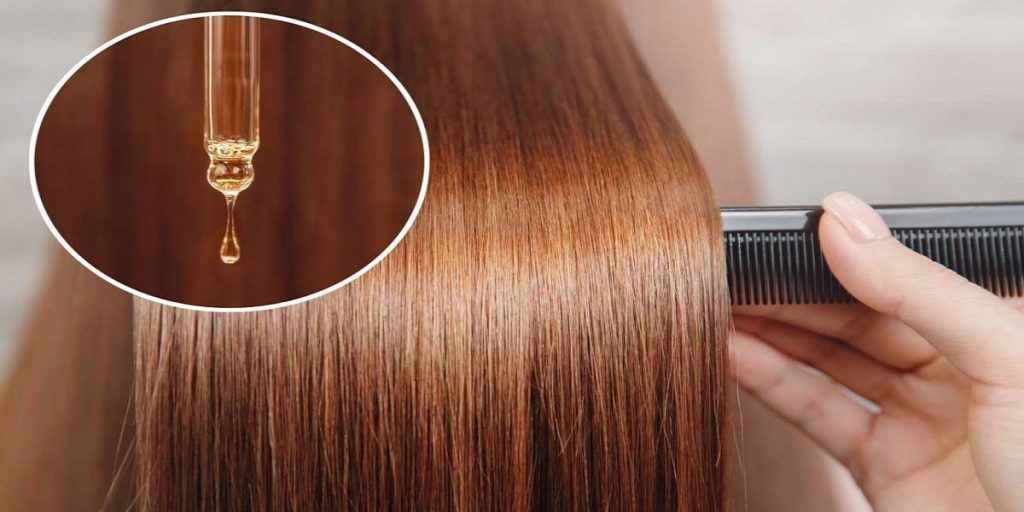
Now that we’ve covered some of the best oils for dry hair, let’s talk about how to incorporate them into your hair care routine at home:
1. Pre-Shampoo Treatment
Before shampooing, massage a generous amount of your chosen oil into your scalp and hair. Leave it on for at least 30 minutes (or overnight for an intensive treatment) before washing it out with a gentle shampoo.
2. Leave-In Conditioner
After washing and conditioning your hair, apply a small amount of oil to the ends of your hair to lock in moisture and prevent dryness. Focus on the driest areas for maximum benefit.
3. Hair Mask
Combine your favorite oil with other natural ingredients like honey, yogurt, or avocado to create a DIY hair mask. Apply the mask to damp hair, leave it on for 20-30 minutes, then rinse thoroughly for soft, hydrated locks.
4. Daily Moisturizer
For daily hydration, mix a few drops of oil with water in a spray bottle and spritz it onto your hair throughout the day. This will help combat dryness and keep your hair looking healthy and shiny.
By understanding the best oils for dry hair and incorporating simple oil treatments into your routine, you can say goodbye to dry, dull locks and hello to hair that’s nourished, hydrated, and full of life. Give it a try and watch your hair transform before your eyes!
Best Hair Oils for Dry Scalp
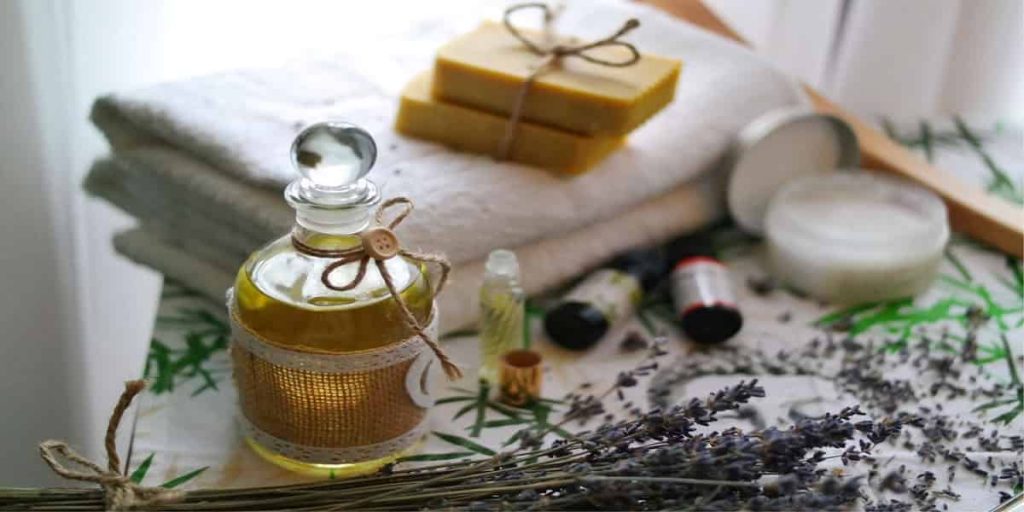
When it comes to hair care, addressing specific concerns requires tailored solutions. Let’s explore oils that target particular issues like low porosity hair and dry scalp, providing effective treatments for healthier hair.
Oils for Low Porosity Hair
Low porosity hair has a hard time absorbing moisture, often leading to dryness and dullness. To combat this, opt for lightweight oils that can penetrate the hair shaft more easily. Here are some excellent choices:
– Argan Oil
This lightweight oil is rich in nutrients and easily absorbed, making it ideal for low porosity hair. It moisturizes without weighing hair down, leaving it soft and manageable.
– Grapeseed Oil
Grapeseed oil is another lightweight option that’s perfect for low porosity hair. It’s rich in vitamins and antioxidants, helping to moisturize and protect the hair without leaving a greasy residue.
– Jojoba Oil
Jojoba oil closely resembles the natural oils produced by our scalp, making it an excellent choice for low porosity hair. It helps to balance moisture levels and improve hair elasticity without causing buildup.
Effective Oil Treatments for Dry Scalp
A dry scalp can lead to itching, flakiness, and discomfort. Fortunately, there are several oils that can help soothe and moisturize the scalp, promoting a healthier environment for hair growth. Here are some options to consider:
– Tea Tree Oil
Tea tree oil is well-known for its antimicrobial and anti-inflammatory properties, making it a great choice for treating dry scalp conditions like dandruff and itching. Mix a few drops with a carrier oil and massage it into your scalp for relief.
– Coconut Oil
Coconut oil has moisturizing and antibacterial properties that can help soothe and hydrate a dry scalp. Massage warm coconut oil into your scalp, leave it on for at least 30 minutes, then shampoo as usual for a nourishing treatment.
– Olive Oil
Olive oil is rich in antioxidants and fatty acids, making it an excellent choice for moisturizing a dry scalp. Warm the oil slightly, massage it into your scalp, and leave it on for 20-30 minutes before shampooing for best results.
By using oils specifically tailored to your hair concerns, such as low porosity or dry scalp, you can effectively address these issues and promote healthier, happier hair. Experiment with different oils to find the ones that work best for you, and enjoy the benefits of nourished, hydrated hair and scalp.
Addressing Hair Type and Condition

Our hair comes in various types and conditions, each requiring specific care to maintain its health and vitality. Let’s explore the best oils tailored for dry, colored hair, nourishing dry curly hair, and revitalizing dry, damaged hair.
Best Oils for Chemically Treated Hair That Become Dry
Chemically or Colored hair tends to be more prone to dryness and damage due to the chemical treatments it undergoes. To keep your colored locks looking vibrant and healthy, consider these nourishing oils. I am just intriducing the oils for this purpose and for details on color treated hair you can learn more from another informative article on colored treated hair and oils for treatment.
– Argan Oil
Rich in antioxidants and vitamins, argan oil is a fantastic choice for colored hair. It helps hydrate and soften dry strands while protecting against environmental damage and color fading.
– Jojoba Oil
Jojoba oil closely mimics the natural oils produced by our scalp, making it gentle and nourishing for colored hair. It helps moisturize and strengthen hair without weighing it down, leaving it silky and manageable.
– Sunflower Oil
Sunflower oil is lightweight yet deeply moisturizing, making it perfect for colored hair. It helps restore moisture balance, enhance shine, and protect hair color from fading due to sun exposure.
Nourishing Dry Curly Hair with Oils
Curly hair tends to be naturally drier due to its structure, making it more prone to frizz and breakage. To keep your curls hydrated and defined, try these nourishing oils:
– Coconut Oil
Coconut oil is a curly hair favorite for its ability to penetrate the hair shaft, providing deep hydration and reducing frizz. It helps define curls and enhance natural texture without weighing hair down.
– Shea Butter
While technically not an oil, shea butter is a rich and creamy emollient that works wonders for dry, curly hair. It helps lock in moisture, reduce breakage, and promote healthy hair growth.
– Avocado Oil
Avocado oil is rich in vitamins, minerals, and fatty acids that nourish and strengthen curly hair. It helps moisturize dry strands, enhance curl definition, and improve overall hair health.
Revitalizing Dry, Damaged Hair with Oils
Dry, damaged hair is in need of some serious TLC to restore its health and vitality. Fortunately, there are oils that can help repair and revitalize even the most damaged locks:
– Olive Oil
Olive oil is deeply moisturizing and nourishing, making it ideal for repairing dry, damaged hair. It helps soften and smooth rough cuticles, reduce breakage, and restore shine and elasticity.
– Argan Oil
Once again, argan oil proves its worth as a powerhouse ingredient for hair care. Its rich blend of antioxidants and fatty acids helps repair damage, improve texture, and strengthen hair from within.
– Sweet Almond Oil
Sweet almond oil is lightweight yet highly moisturizing, making it perfect for dry, damaged hair. It helps strengthen the hair shaft, reduce split ends, and promote healthier, more resilient hair over time.
By selecting the right oils for your specific hair type and condition, you can effectively address dryness, damage, and other concerns, leaving your hair looking and feeling its best. Experiment with different oils to find the ones that work best for you, and enjoy the benefits of nourished, beautiful hair!
Exploring Key Oil Varieties

When it comes to hair care, the world of oils is vast and varied. From olive oil to almond oil to black seed oil, each variety offers unique benefits for dry hair. Let’s delve into the specifics and uncover how these oils can nourish and rejuvenate your locks.
Olive Oil: Benefits for Dry Hair
Olive oil has been cherished for centuries for its culinary and medicinal properties, and its benefits extend to hair care as well. Here’s why olive oil is a favorite choice for those with dry hair:
– Deep Moisturization
Olive oil is rich in antioxidants and fatty acids that penetrate the hair shaft, providing deep hydration and nourishment to dry, brittle strands.
– Improves Hair Texture
Regular use of olive oil can help soften rough cuticles, making hair more manageable and less prone to breakage and split ends.
– Adds Shine
Olive oil helps smooth the hair’s surface, reflecting light and enhancing its natural shine and luster.
– Strengthens Hair
The vitamins and minerals in olive oil help strengthen hair from the inside out, reducing breakage and promoting healthier, more resilient strands over time.
Almond Oil: Effectiveness for Dry Hair
Almond oil is another popular choice for those seeking to hydrate and nourish dry hair. Here’s why almond oil is so effective:
– Lightweight Hydration
Almond oil is lightweight and easily absorbed, making it ideal for dry, thirsty hair. It moisturizes without weighing hair down, leaving it soft, silky, and smooth.
– Rich in Nutrients
Almond oil is packed with vitamins E and D, as well as essential fatty acids, all of which help nourish and strengthen hair from root to tip.
– Improves Scalp Health
Massaging almond oil into the scalp can help soothe irritation and inflammation, promoting a healthier environment for hair growth.
– Reduces Frizz
Almond oil helps smooth the hair cuticle, reducing frizz and flyaways for a sleeker, more polished look. You can dive deep into managing the frizz control by exploring the detailed guide on frizz management.
Black Seed Oil for Hair: Is It Beneficial?
Black seed oil, also known as black cumin seed oil, has gained popularity in recent years for its purported health and beauty benefits. But is it beneficial for dry hair? Let’s find out:
– Moisturizing Properties
Black seed oil is rich in fatty acids and antioxidants that help moisturize and nourish dry, damaged hair, leaving it softer and more manageable.
– Stimulates Hair Growth
Some studies suggest that black seed oil may help stimulate hair growth and improve overall hair health when applied topically to the scalp.
– Strengthens Hair
Black seed oil contains nutrients like zinc and selenium, which help strengthen hair follicles and reduce breakage and shedding.
– Anti-Inflammatory Effects
Black seed oil has anti-inflammatory properties that can help soothe a dry, irritated scalp, reducing itching and flakiness.
While more research is needed to fully understand the benefits of black seed oil for hair, many people swear by its moisturizing and nourishing properties, making it worth considering as part of your hair care routine.
Exploring these key oil varieties can help you discover the perfect solution for your dry hair concerns. Whether you opt for olive oil, almond oil, black seed oil, or a combination of all three, incorporating these natural remedies into your hair care routine can lead to healthier, happier locks in no time.
Special Ingredients and Solutions

When it comes to tackling dry hair, sometimes the most effective solutions come from unexpected places. Let’s dive into the importance of special ingredients like onion extract and explore some innovative solutions for combating dry hair concerns.
The Importance of Onion Extract for Dry Hair
Onion extract might not be the first thing that comes to mind when you think of hair care, but this humble ingredient packs a powerful punch when it comes to nourishing dry locks. Here’s why onion extract is so important for dry hair:
– Stimulates Hair Growth
Onion extract is rich in sulfur, which helps improve blood circulation to the scalp and stimulate hair follicles, promoting healthy hair growth.
– Nourishes the Scalp
The antioxidants and nutrients in onion extract help nourish and moisturize the scalp, reducing dryness and flakiness and creating a healthier environment for hair growth.
– Strengthens Hair
Onion extract contains keratin, a protein that helps strengthen hair strands and reduce breakage, leaving hair stronger, smoother, and more resilient. Another thing with these is a plus and that is frizz controling and keping the hair manageable.
– Reduces Hair Loss
Some studies suggest that onion extract may help reduce hair loss and improve hair density, making it a valuable ingredient for those struggling with thinning or brittle hair.
While the thought of applying onion extract to your hair might seem strange at first, the potential benefits for dry, damaged locks make it worth considering as part of your hair care routine.
Innovative Solutions for Dry Hair Concerns
In addition to special ingredients like onion extract, there are plenty of innovative solutions available for addressing dry hair concerns. Here are a few ideas to try:
– Hair Steaming
Steam treatments help open up the hair cuticle, allowing deep-conditioning products to penetrate more effectively and hydrate dry, thirsty strands from the inside out.
– Scalp Massage
Regular scalp massages can help stimulate blood flow to the scalp, promoting a healthier environment for hair growth and reducing dryness and flakiness.
– Silk Pillowcases
Switching to a silk pillowcase can help reduce friction and breakage, preventing further damage to dry, fragile hair while you sleep.
– Dry Shampoo Alternatives
Traditional dry shampoos can be drying and irritating to the scalp. Consider trying a dry shampoo alternative like cornstarch or arrowroot powder to absorb excess oil without stripping moisture from the hair.
By incorporating special ingredients like onion extract and exploring innovative solutions for dry hair concerns, you can effectively address dryness, damage, and other issues, leaving your locks looking and feeling healthier and more hydrated than ever before. Experiment with different techniques and ingredients to find what works best for you, and enjoy the benefits of beautiful, nourished hair.
Conclusion
In conclusion, addressing dry hair requires a multifaceted approach that includes choosing the right oils, incorporating special ingredients, and exploring innovative solutions. Throughout this exploration, we’ve discovered the importance of selecting oils tailored to your hair type and condition, such as argan oil for colored hair, coconut oil for curly hair, and olive oil for damaged locks. We’ve also uncovered the potential benefits of special ingredients like onion extract, which can stimulate hair growth, nourish the scalp, and strengthen hair strands.
Additionally, we’ve explored innovative solutions for combating dry hair concerns, from hair steaming and scalp massages to silk pillowcases and dry shampoo alternatives. By incorporating these strategies into your hair care routine, you can effectively address dryness, damage, and other issues, leaving your locks looking and feeling healthier and more hydrated than ever before.
Ultimately, the key to achieving luscious, hydrated hair lies in understanding your unique hair needs and experimenting with different techniques and ingredients to find what works best for you. So go ahead, pamper your locks, and embrace the journey to healthier, more beautiful hair.
FAQs
Q: What causes dry hair?
A: Dry hair can be caused by a variety of factors, including genetics, environmental factors (such as sun exposure and harsh weather), excessive heat styling, overwashing, using harsh hair products, and underlying health conditions.
Q: How can I prevent my hair from becoming dry?
A: To prevent dry hair, it’s essential to use a gentle shampoo and conditioner, limit heat styling, avoid overwashing, protect your hair from the sun and harsh weather, and maintain a healthy diet rich in vitamins and minerals. Additionally, using hydrating hair masks and oils can help keep your hair moisturized.
Q: What are the best oils for dry hair?
A: Some of the best oils for dry hair include argan oil, coconut oil, olive oil, almond oil, and jojoba oil. These oils are rich in nutrients and fatty acids that help moisturize and nourish dry locks.
Q: How often should I apply oil to my dry hair?
A: The frequency of oil application depends on your hair type and condition. For most people with dry hair, applying oil 1-2 times per week should be sufficient. However, you can adjust the frequency based on how your hair responds to the treatment.
Q: Can I use onion extract for dry hair?
A: Yes, onion extract can be beneficial for dry hair. It is rich in sulfur, which helps stimulate hair growth and improve scalp health. Additionally, onion extract contains antioxidants and nutrients that nourish and moisturize the hair, making it softer and more manageable.
Q: Are there any home remedies for dry hair?
A: Yes, several home remedies can help treat dry hair, including using coconut oil or olive oil as a deep conditioning treatment, applying aloe vera gel to the scalp, using a honey and yogurt hair mask, and rinsing hair with apple cider vinegar diluted in water.

Dr. Fazila Abbas stands as a distinguished expert in the realm of skincare and haircare, bringing a wealth of knowledge and experience to her esteemed position as a specialist. With a fervent dedication to the science of dermatology, Dr. Abbas has carved a niche as a trusted advisor in the pursuit of radiant skin and healthy hair.
Her academic journey includes rigorous training in dermatological sciences, where she honed her skills and gained profound insights into the intricacies of skincare and haircare. Dr. Fazila’s holistic approach to beauty emphasizes the integration of medical expertise with personalized care, ensuring that each individual receives tailored solutions for their unique needs. As a respected professional, she continues to contribute to the field through research, innovative treatments, and a commitment to empowering others to look and feel their best. Driven by a passion for transformative skincare and haircare, Dr. Fazila Abbas stands as a beacon of excellence in the world of dermatology.


